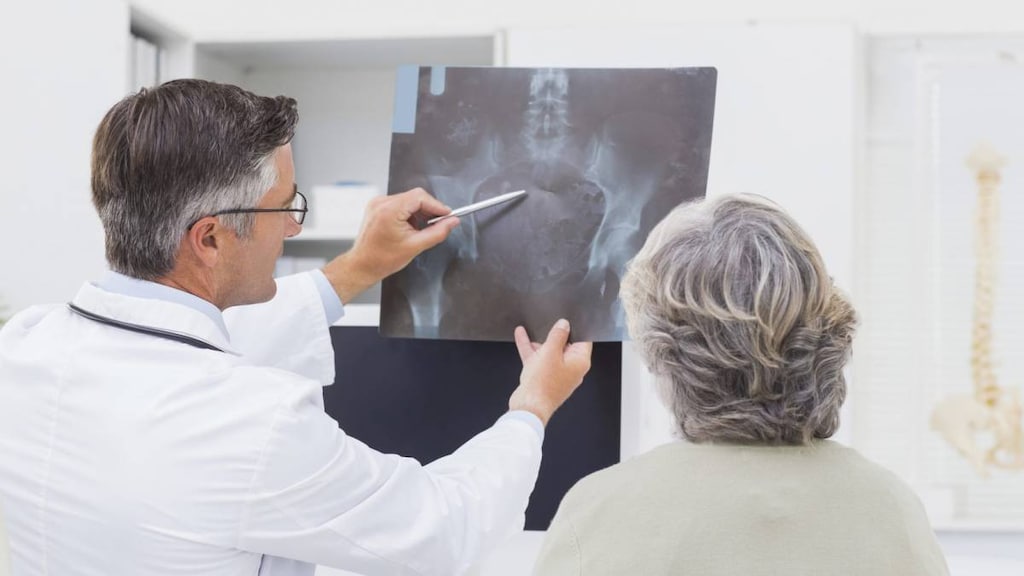What is atezolizumab used for?
- Atezolizumab is used to treat cancer.
Before taking atezolizumab, tell your doctor:
- If you are allergic to atezolizumab; any part of this medicine; or any other drugs, foods, or substances. Tell your doctor about the allergy and what signs you had.
- If you are breast-feeding. Do not breast-feed while you take atezolizumab and for 5 months after you stop taking it.
This medicine may interact with other drugs or health problems.
Tell your doctor and pharmacist about all of your drugs (prescription or OTC, natural products, vitamins) and health problems. You must check to make sure that it is safe for you to take atezolizumab with all of your drugs and health problems. Do not start, stop, or change the dose of any drug without checking with your doctor.
What are some things I need to know or do while I take atezolizumab?
- Tell all of your health care providers that you take atezolizumab. This includes your doctors, nurses, pharmacists, and dentists.
- This medicine may cause very bad side effects. Sometimes these have been life-threatening or deadly. These may happen in the lungs, bowels, liver, kidney, pituitary gland, thyroid gland, or other parts of the body. If you have questions, talk with the doctor.
- Tell the doctor right away if you have chest pain; coughing up blood; fever; confusion; weakness on 1 side of the body, trouble speaking or breathing, change in balance, drooping on one side of the face, or blurred eyesight; or severe stomach or back pain.
- You may have more of a chance of getting an infection. Wash hands often. Stay away from people with infections, colds, or flu. Some infections have been very bad and even deadly.
- Call your doctor right away if you have any signs of infection like fever, chills, flu-like signs, very bad sore throat, ear or sinus pain, cough, more sputum or change in color of sputum, pain with passing urine, mouth sores, or a wound that will not heal.
- Some people have had side effects during the infusion. Sometimes, these could be severe or life-threatening. Tell your doctor if you have back or neck pain, chills, shaking, dizziness, passing out, fever, flushing, itching, rash, shortness of breath, swelling of the face, or wheezing.
- It is common to have diarrhea with atezolizumab. However, a severe bowel problem (colitis) with diarrhea has happened with atezolizumab. This may lead to tears or holes in the bowels and may be life-threatening. Call your doctor right away if you have bloody stools; dark, tarry, or sticky stools; diarrhea; or severe stomach pain.
- Call your doctor right away if you have signs of liver problems like dark urine, feeling tired, not hungry, upset stomach or stomach pain, light-colored stools, throwing up, or yellow skin or eyes.
- Call your doctor right away if you have signs of thyroid, pituitary, or adrenal gland problems. Some signs may be change in mood or the way you act, change in weight, constipation, deeper voice, dizziness, fainting, feeling cold, feeling very tired, hair loss, headache that lasts or is very bad, or lowered interest in sex.
- This medicine may cause fertility problems. This may affect being able to have children. Talk with the doctor.
- This medicine may cause harm to an unborn baby. A pregnancy test will be done before you start atezolizumab to show that you are NOT pregnant.
- Women must use birth control while taking atezolizumab and for some time after the last dose. Ask your doctor how long to use birth control. If you get pregnant, call your doctor right away.
How is atezolizumab best taken?
Use atezolizumab as ordered by your doctor. Read all information given to you. Follow all instructions closely.
- It is given as an infusion into a vein over a period of time.
- Have blood work checked as you have been told by the doctor. Talk with the doctor.
- High blood sugar has happened with atezolizumab. This includes diabetes that is new or worse.
- Check your blood sugar as you have been told by your doctor.
- Tell your doctor if you have signs of high blood sugar like confusion, feeling sleepy, more thirst, more hungry, passing urine more often, flushing, fast breathing, or breath that smells like fruit.
What do I do if I miss a dose?
- Call your doctor to find out what to do.
What are the side effects of atezolizumab that I need to call my doctor about immediately?
WARNING/CAUTION: Even though it may be rare, some people may have very bad and sometimes deadly side effects when taking a drug. Tell your doctor or get medical help right away if you have any of the following signs or symptoms that may be related to a very bad side effect:
- Signs of an allergic reaction, like rash; hives; itching; red, swollen, blistered, or peeling skin with or without fever; wheezing; tightness in the chest or throat; trouble breathing, swallowing, or talking; unusual hoarseness; or swelling of the mouth, face, lips, tongue, or throat.
- Signs of lung or breathing problems like shortness of breath or other trouble breathing, cough, or fever.
- Signs of a pancreas problem (pancreatitis) like very bad stomach pain, very bad back pain, or very bad upset stomach or throwing up.
- Signs of nervous system problems like change in mood or actions, feeling confused, fever, numbness or tingling in the hands or feet, stiff neck, bright lights bother your eyes, or very bad muscle weakness.
- Signs of electrolyte problems like mood changes, confusion, muscle pain or weakness, a heartbeat that does not feel normal, seizures, not hungry, or very bad upset stomach or throwing up.
- Signs of heart problems like chest pain, fast heartbeat, a heartbeat that does not feel normal, or shortness of breath.
- Signs of kidney problems like unable to pass urine, change in how much urine is passed, blood in the urine, or a big weight gain.
- Signs of a very bad skin reaction (Stevens-Johnson syndrome/toxic epidermal necrolysis) like red, swollen, blistered, or peeling skin (with or without fever); red or irritated eyes; or sores in the mouth, throat, nose, or eyes.
- Signs of a urinary tract infection (UTI) like blood in the urine, burning or pain when passing urine, feeling the need to pass urine often or right away, fever, lower stomach pain, or pelvic pain.
- Swelling in the arms or legs.
- Any unexplained bruising or bleeding.
- Eye problems have happened with atezolizumab. Some types of eye problems may need to be treated right away to lower the chance of long-lasting eyesight loss. Call your doctor right away if you have any changes in eyesight, eye pain, or very bad eye irritation.
What are some other side effects of atezolizumab?
All drugs may cause side effects. However, many people have no side effects or only have minor side effects. Call your doctor or get medical help if any of these side effects or any other side effects bother you or do not go away:
- Feeling tired or weak.
- Not hungry.
- Upset stomach or throwing up.
- Constipation.
- Stomach pain.
- Back, bone, joint, muscle, or neck pain.
- Headache.
These are not all of the side effects that may occur. If you have questions about side effects, call your doctor. Call your doctor for medical advice about side effects.
You may report side effects to the FDA at 1-800-332-1088. You may also report side effects at https://www.fda.gov/medwatch.
If overdose is suspected:
If you think there has been an overdose, call your poison control center or get medical care right away. Be ready to tell or show what was taken, how much, and when it happened.
How do I store and/or throw out atezolizumab?
- If you need to store atezolizumab at home, talk with your doctor, nurse, or pharmacist about how to store it.
Consumer information use and disclaimer
- If your symptoms or health problems do not get better or if they become worse, call your doctor.
- Do not share your drugs with others and do not take anyone else's drugs.
- Keep all drugs in a safe place. Keep all drugs out of the reach of children and pets.
- Throw away unused or expired drugs. Do not flush down a toilet or pour down a drain unless you are told to do so. Check with your pharmacist if you have questions about the best way to throw out drugs. There may be drug take-back programs in your area.
- This medicine comes with an extra patient fact sheet called a Medication Guide. Read it with care. Read it again each time atezolizumab is refilled. If you have any questions about atezolizumab, please talk with the doctor, pharmacist, or other health care provider.
- If you think there has been an overdose, call your poison control center or get medical care right away. Be ready to tell or show what was taken, how much, and when it happened.
This information should not be used to decide whether or not to take atezolizumab or any other medicine. Only the healthcare provider has the knowledge and training to decide which medicines are right for a specific patient. This information does not endorse any medicine as safe, effective, or approved for treating any patient or health condition. This is only a brief summary of general information about this medicine. It does NOT include all information about the possible uses, directions, warnings, precautions, interactions, adverse effects, or risks that may apply to atezolizumab. This information is not specific medical advice and does not replace information you receive from the healthcare provider. You must talk with the healthcare provider for complete information about the risks and benefits of using this medicine.




